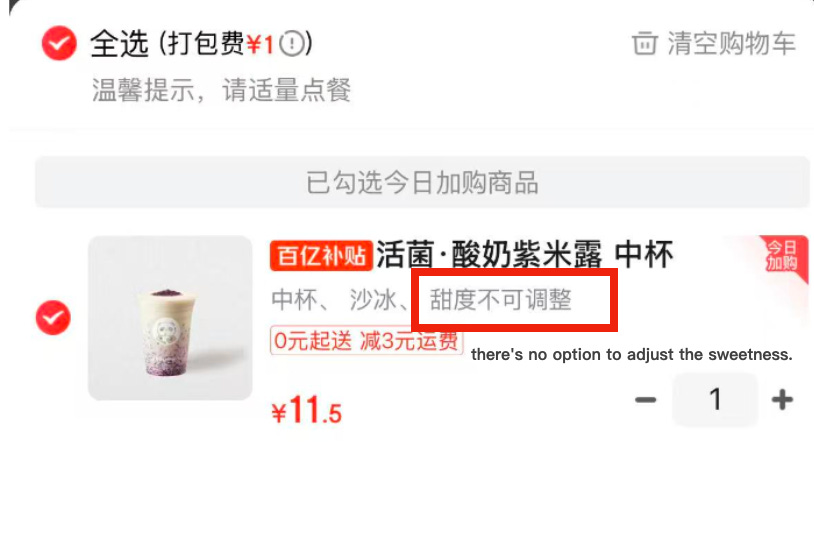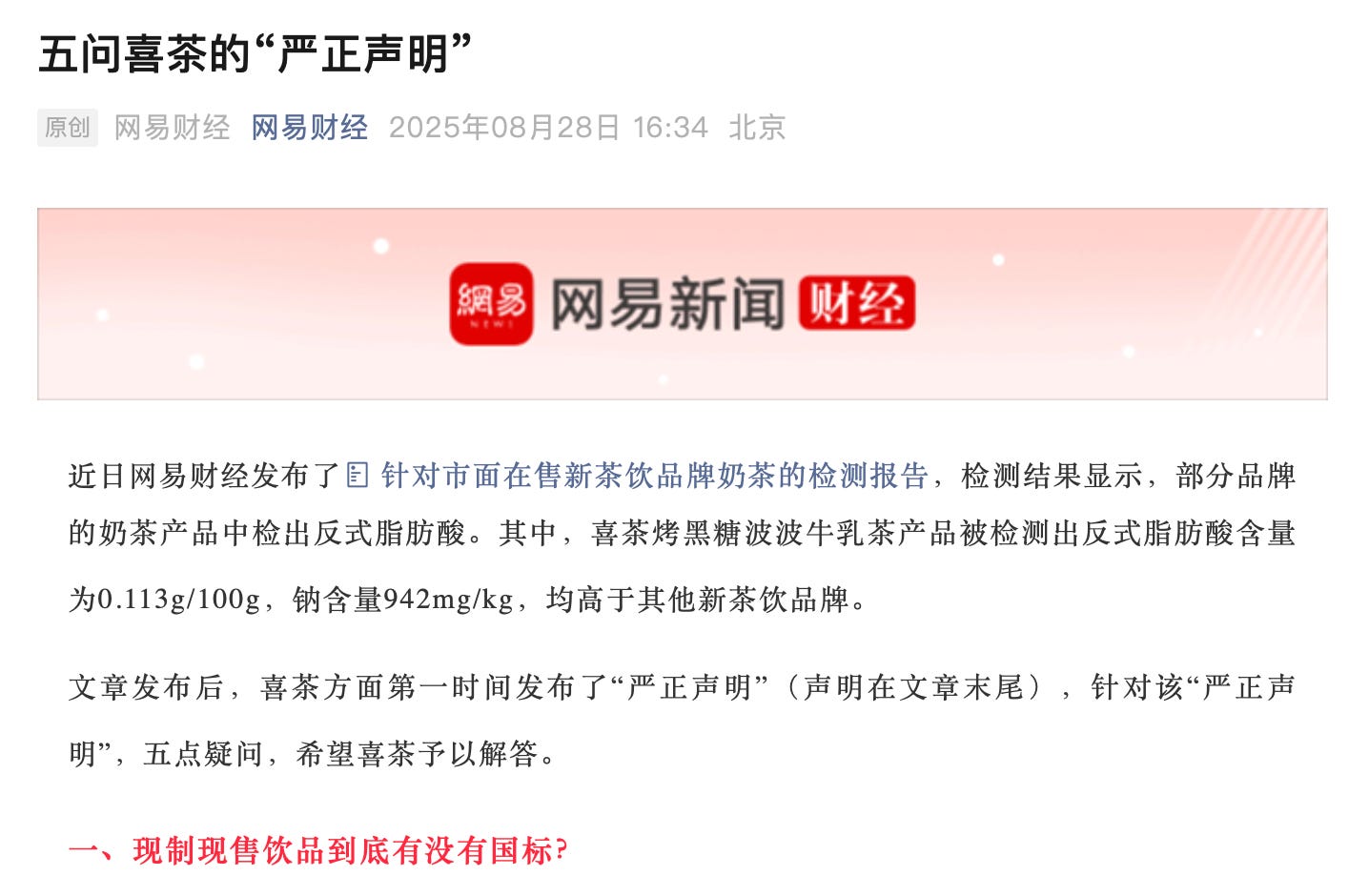The bitter truth in China's sweetest craze
After NetEase sent samples for testing, lab results from eight top milk tea brands revealed disturbing findings.
The pain was like nothing I had ever experienced.
In late June, I underwent emergency surgery to remove my gallbladder, which was packed with gallstones.
While I was profoundly grateful that China’s national health insurance covered the bulk of the cost—slashing my bill from 20,000 RMB to just over 1,000 — almost free —the searing pain and grueling recovery left a permanent mark. As someone with a low pain tolerance, I suffered intensely, and even painkillers offered little relief.
This painful experience forced a brutal introspection. I knew my recent diet, heavy on sugary drinks and fatty foods, was a primary culprit. My illness became a catalyst for change, compelling me to overhaul my eating habits for good.
Naturally, I began scrutinizing the food and beverage industry through a new, health-conscious lens. So, when a major food safety debate around milk tea erupted last week, it caught my full attention.
According to an investigation by NetEase Finance, professional lab tests on drinks from eight major brands—including giants Mixue, HeyTea, and ChaGee —revealed alarming findings: excessively high sugar content and the presence of trans fatty acids, a lipid consumers have increasingly rejected 👇.
The backlash on Chinese social media was swift. Concern and frustration erupted almost immediately on Xiaohongshu, where users flooded the site with critical comments. Here's a look at what people are saying online 👇
“Some products' sugar content exceeds the daily recommended limit. Responsible brands shouldn't make such mistakes, even if it's technically legal."
“Brands that push 'natural' and 'healthy' concepts are misleading consumers. This advertising leads people to drink these products like water, when in reality, they can't be considered 100% healthy. It's reminiscent of how 'intelligent autonomous driving' can misleadingly make drivers think they can sleep at the wheel."
Brands like ChaGee and HeyTea were quick to respond, stating that their products comply with national standards for trans fats. But NetEase fired back decisively, arguing that the cited standards apply to pre-packaged foods, not freshly-made beverages 👇.
Notably, no brand has responded the core issue of sky-high sugar levels. I guess they see little upside in investing effort on this point; although sugar-free options are available for most products now, brands can only control the amount of syrup added rather than all sugar content. When the sugar comes from other ingredients, they simply have no control over its levels 👇

In truth, such debates are not new.
The health profile of milk tea has been under a microscope for years, from the early scandals about "non-dairy creamer" to more recent controversies over ingredients like ChaGee's "Non-hydrogenated Base Milk (冰勃朗)”. This persistent scrutiny and debate has, admittedly, forced some positive changes — for instance, most brands have now reduced or eliminated traditional non-dairy creamer.
You might wonder why coffee doesn't spark much controversy—it's because the natural flavor and fat of milk and coffee beans are enough to make a cup of Americano or latte sufficiently enjoyable. Milk tea, on the other hand, tells a different story. Even though modern Chinese milk tea brands have upgraded their recipes, switching to fresh milk and whole-leaf tea as their new popular base ingredients, the reality is this: made with only tea and milk, it would still taste ultimately rather plain. Its irresistible flavor and rich mouthfeel actually come from additional elements.
This is the inherent paradox the milk tea industry cannot escape. It’s also the question we must repeatedly ask ourselves — how many cups of this concoction can we truly justify drinking per day?





Chinese people are drinking bubble tea like they have free healthcare (no different from Americans, although arguably Chinese people enjoy free-er, or at least cheaper, healthcare than Americans).